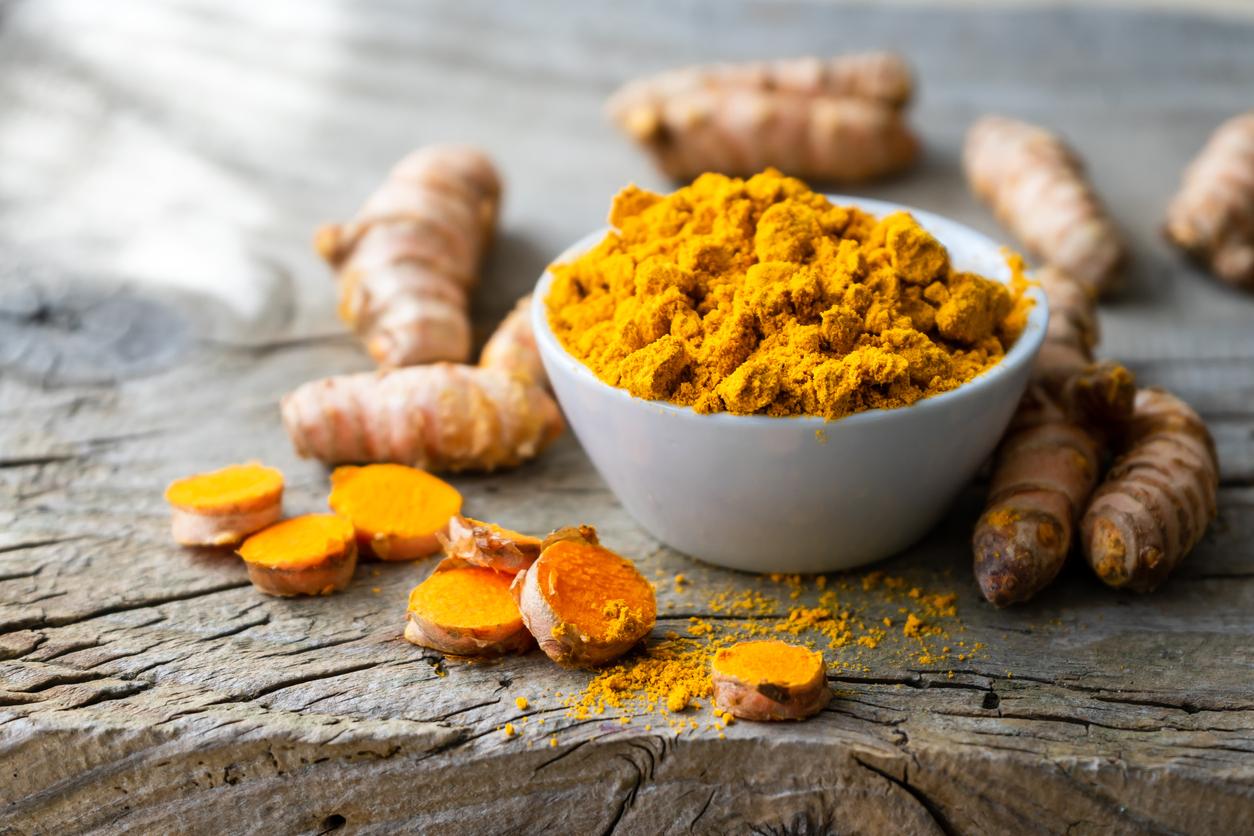Turmeric, a yellow-orange colored spice, has physical and neurological health benefits.

- Curcumin is the active ingredient present in the root of the turmeric plant.
- It has many benefits for physical and neurological health.
- However, it is contraindicated for some people.
As soon as possible, some season their dish with turmeric. But beyond the taste, this yellow-orange spice also has many physical and neurological health benefits. This comes from curcumin, an active ingredient present in the root of the plant, which has many virtues.
Turmeric, a spice with many health benefits
This spice is known for its antioxidant and anti-inflammatory properties which would prevent diseases linked to aging, in particular the development of heart pathologies, type 2 diabetes and certain cancers.
The anti-inflammatory aspect of this spice is a cure for many ailments. It would make it possible to fight against muscular pains during physical efforts, against arthritis, rheumatism but also against certain digestive and intestinal disorders, in particular bloating.
“A controlled clinical study with a placebo group showed some effectiveness of turmeric in minor digestive disorders (heartburn, bloating, flatulence, etc.)”, can we read on the Vidal.
Turmeric can cure or prevent certain neurological disorders
At the neurological level, this spice is also interesting in several pathologies, including depression. Indeed, according to a study published in 2015 in the journal Phytotherapy Researchturmeric would be even more effective than Prozac (an antidepressant medicine).
“The positive antidepressant and anti-anxiolytic effects of curcumin are most likely attributable to its ability to normalize specific physiological mechanisms”, says Dr. Loprestiauthor of this study.
On the other hand, regularly consuming curcumin could help prevent the onset of certain neurological diseases, such as Alzheimer’s according to this study. The researchers compared the prevalence of this pathology between the Indian population aged 70 to 79 and the same age group in the United States. Result: the prevalence was 4.4 times lower for the first who consumed more curcumin in their diet.
But can everyone consume turmeric? According to the Vidal, there are contraindications. People who suffer from obstruction of the bile ducts, liver disease, stomach ulcer should seek the advice of their doctor before taking turmeric.
Finally, for pregnant women, those who are breastfeeding and those under 18, it is recommended not to take it except for food use.

















